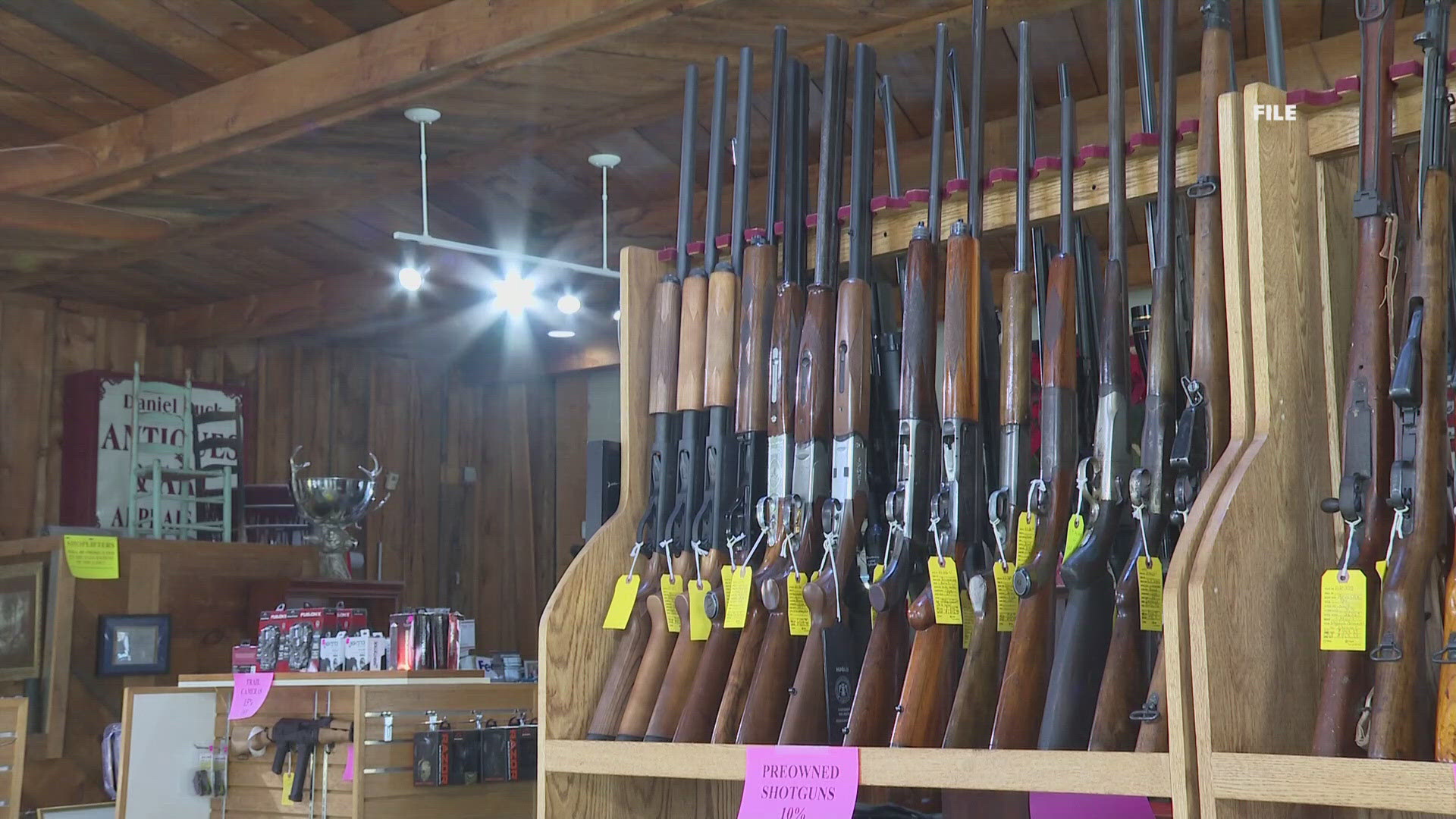MAINE, USA — A coalition of Maine gun rights groups is challenging a law requiring a three-day waiting period to purchase a firearm, a measure that took effect in August. It is one of several gun safety bills state lawmakers passed following the Lewiston shootings that killed 18 people. The groups argue the law violates constitutional rights, while gun safety advocates say the waiting period could reduce impulsive acts of violence, including suicides.
David Trahan, the executive director of the Sportsman’s Alliance of Maine, said the organization is following through on a promise made when the bill was being considered. “We made it public on several occasions that if the legislature passed it, we would challenge it,” Trahan said. The Sportsman’s Alliance of Maine, alongside Gun Owners of Maine and other partners, has now filed a lawsuit in U.S. District Court against Maine Attorney General Aaron Frey.
Gun rights groups claim the law infringes on their Second Amendment rights, a position they hope to argue successfully in court. The group is represented by the law firm Clement & Murphy, which has experience with the U.S. Supreme Court and Second Amendment cases.
“We continue to believe today that the law is unconstitutional,” Trahan said, expressing confidence in the legal challenge they have presented.
On the other side of the debate, Nacole Palmer, director of the Maine Gun Safety Coalition, expressed little surprise about the legal challenge, noting that similar laws have faced court scrutiny in other states. She argued that waiting periods can serve as effective deterrents for impulsive decisions that may lead to gun-related harm.
“In Maine, where nearly 90% of gun deaths are suicides, this is a much-needed law,” Palmer explained.
Palmer said in states that have challenged the law, so far, they haven't had much success. It's something the Maine Attorney General has also said.
"We look forward to defending this important public safety law," Frey said in a statement to NEWS CENTER Maine. "Waiting periods have been upheld across the country as a reasonable, limited regulation that does not infringe on Second Amendment rights."

